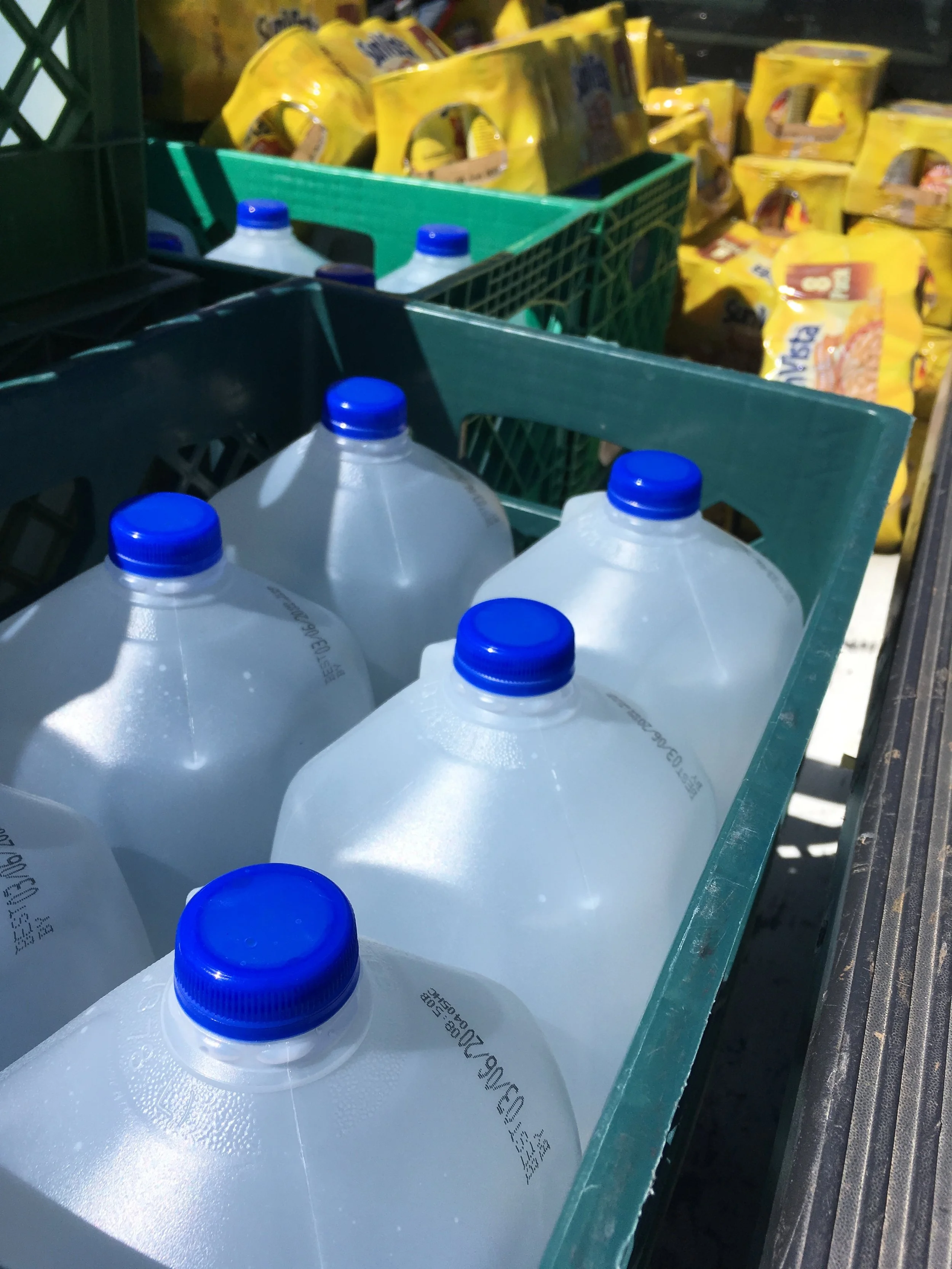Last Sunday, March 24, was a long day.
First thing that morning, a dozen No More Deaths volunteers and facilitators piled into a pair of pickup trucks in Tucson and drove an hour south to the tiny unincorporated community of Arivaca, Arizona (population: several hundred, scattered across mobile homes and ranches). On the way, uniformed Border Patrol agents waved us through a small checkpoint. Beyond Arivaca’s main street the roads became narrow dirt tracks, which we followed to our campsite.
The camp itself was a small stretch of scrub on a friend’s private property about ten miles north of the U.S.-Mexico border. It didn’t have much… but it had everything we would need for the week: A small trailer stocked like a pantry. An open-air kitchen area with propane stoves. A picnic table over which I helped string a shade sail to shelter us from the noon sun. On the far side of the campground was the shitter—a bucket screened by tarps. The pisser was wherever you unzipped your fly or dropped your jeans and popped a squat, ideally behind one of the bushier mesquites while everyone else politely ignored you. And your bed was wherever you pitched your tent.
After dispersing to set up our gear, we reconvened at the picnic table for a lunch of sandwiches. The plan for the rest of the afternoon was simple: get back in the pickups and split up to deliver water and beans to a handful of predetermined drop points along trails where migrants were likely to run out of supplies on their long treks north.
This entailed driving impossibly rutted, rocky, hilly, flooded, pitted, tilting dirt roads all around the borderlands. For hours we rumbled over rolling hills of mesquite, cholla, yucca, tussock, catclaw, the tiny yellow buds of nocturnal primrose. We glimpsed jackrabbits with comically outsize ears as they darted among the cacti, and passed lone black cows nosing the grass every few miles.
Here and there, we parked and hiked to No More Deaths’ drop points. We noted how many of the water jugs and cans of beans there had been used. If the stock was depleted, we dropped off fresh supplies and collected up empties to bring back to camp. At my group’s third stop along a flat length of wash, the last eight gallons had been slashed or stabbed, presumably by Border Patrol agents—the water seeped out of neat slits in the plastic. We cleaned them up and set out replacements.
There’s more to say about what happened on our first expedition in the desert, but we were asked not to write about the people we meet or work with. So I’ll just say this: from day one I knew that everyone there was wonderful. Earnest and committed, honest and full of humor, hard-working and well-informed and self-aware. And yes, people do die out there. And yes, this group’s work to place resources where they’re needed and rescue lost travelers and redirect them to safe places does save lives. All I did that day—probably all I’d do all week—was carry water and beans a quarter mile out from the truck across a stream or up a thorny hardscrabble hill. But the people who are out there long-term and have dedicated themselves to knowing the terrain and what happens where and how to help… they are heroes.
We made it back to camp a couple hours after sunset and shared a simple spaghetti dinner under the stars. Someone lit a fire and we huddled around it, warming our hands and faces while our backs grew ever colder in the night. When we turned in, our tents each glowed yellow in the cooling blackness; taken together we shone like a little constellation on the land. Then, as the wind blew and some coyotes yipped in the distance, our lights winked out one by one and we bedded down to sleep.












